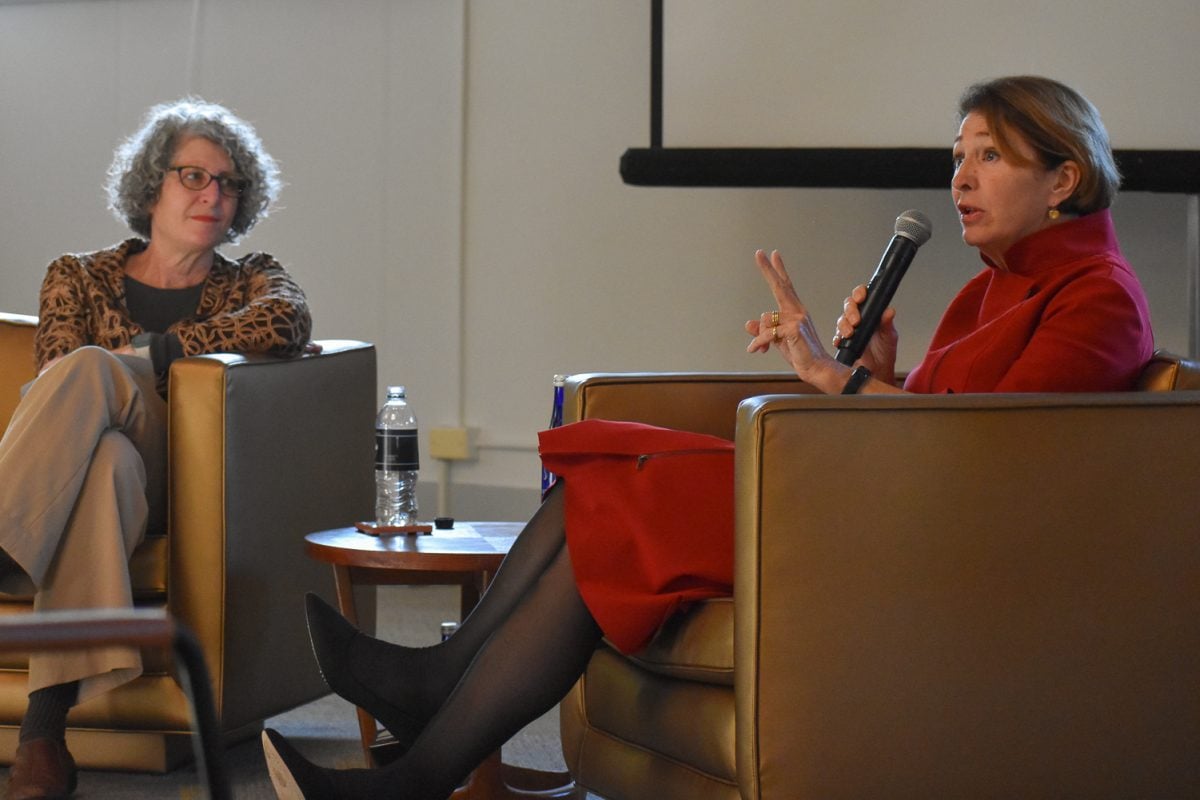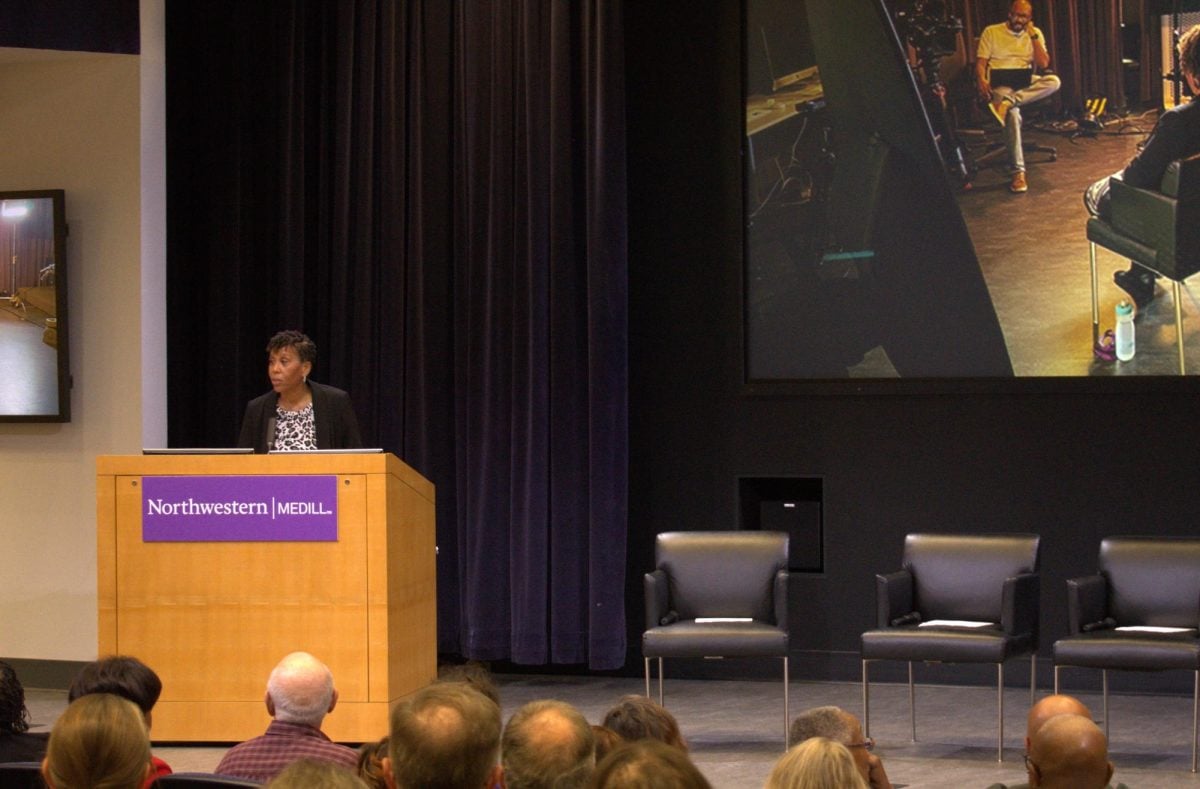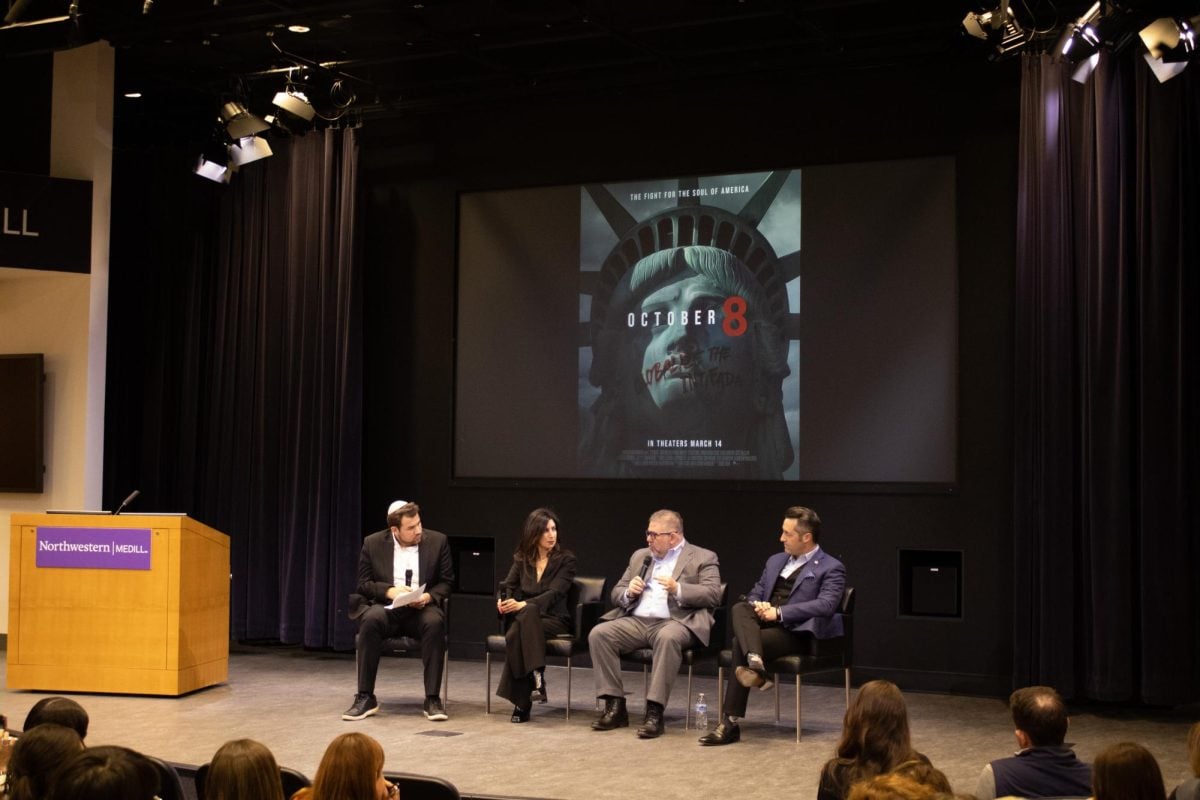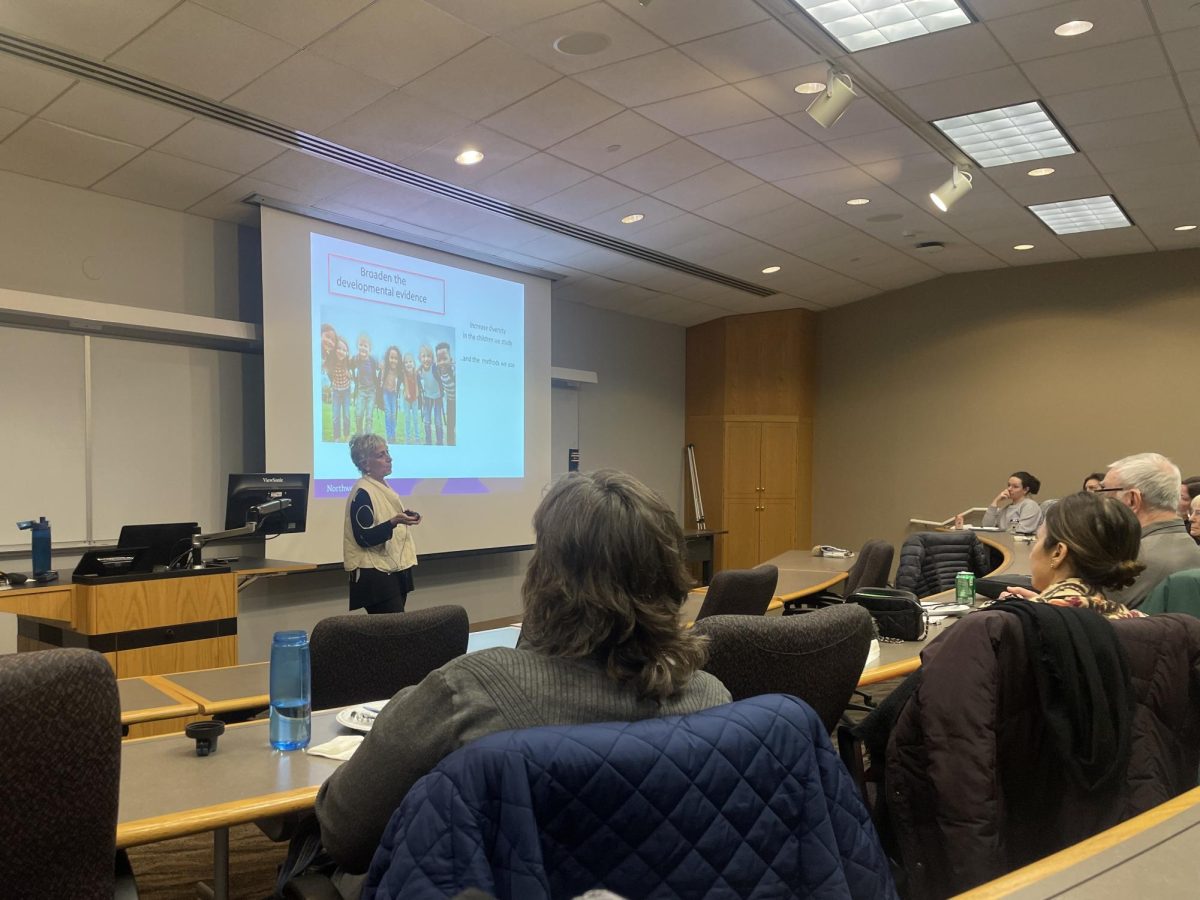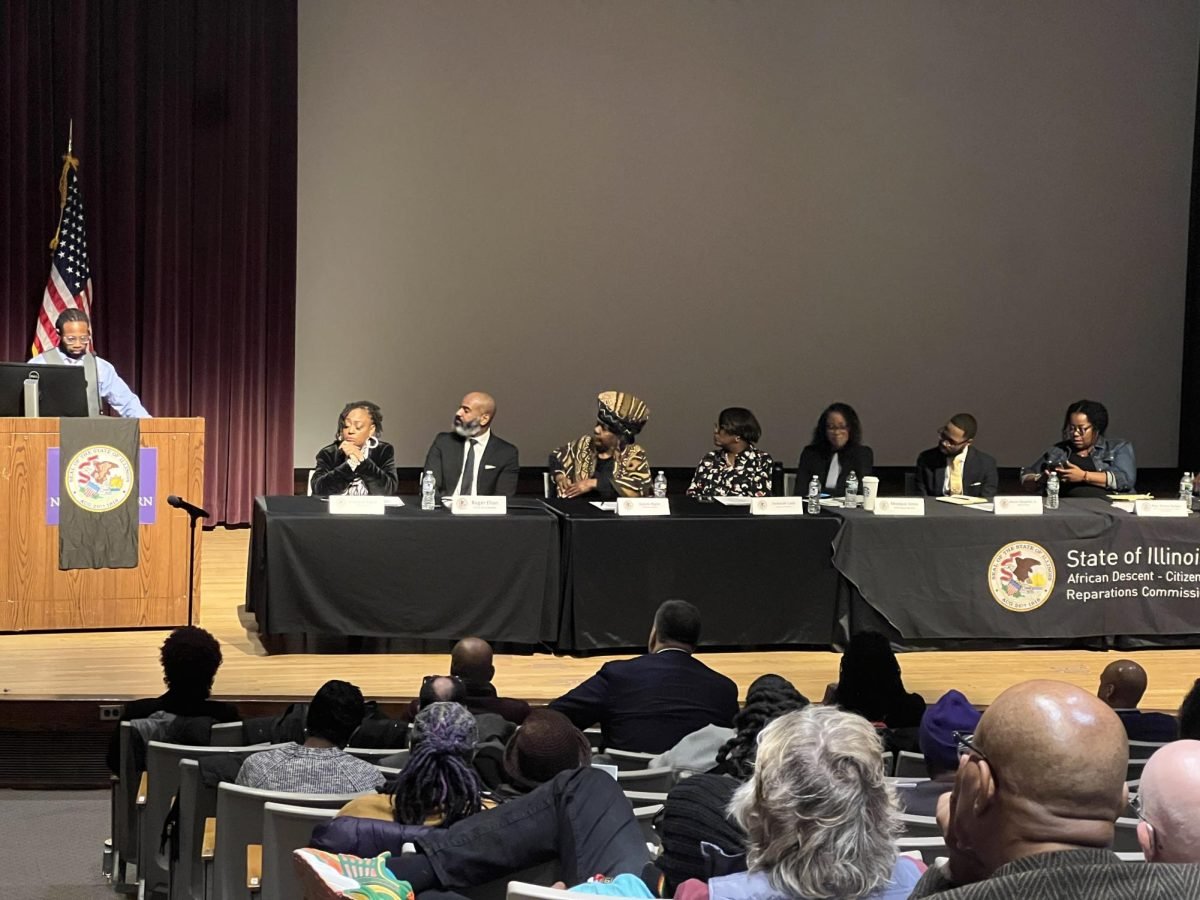Anne-Marie Slaughter, the former U.S. State Department director of policy planning, spoke about contemporary issues as well as her hopes and predictions in international law at a Buffett Institute for Global Affairs event Tuesday.
The event, titled “International Law in Turbulent Times: What Makes a Difference?” was moderated by political science and law Prof. Karen Alter.
Slaughter is also the CEO of New America, a think tank that produces research and policy recommendations related to education, family and economic security and global politics. In 2009, she became the first woman to be appointed to her previous position in the State Department.
Buffett Institute Director Deborah Cohen called Slaughter an “out-of-the-box thinker” when it comes to international relations and law.
“(She’s) quite inspiring as we think about what is the next thing that happens in our world and how we can imagine a set of international institutions different from the ones we currently have,” Cohen said.
In her talk, Slaughter said smaller countries are more enthusiastic about participating in discussions of international law than bigger countries.
“Middle powers are at a rise right now — we’re entering a world where 193 states can be more functional than the U.S. Congress,” Slaughter said.
She also said she expects non-governmental actors to grow in diplomatic influence over the coming decades.
Slaughter also predicts that Indigenous peoples will be more engaged in policy processes globally. She argued that branches of the U.N. and regional organizations should include Indigenous perspectives in their decision-making to preserve communities and their land.
“We have to turn to Indigenous populations for guidance,” Slaughter said. “Nations like the U.S. represent them globally, but there is a great deal to be done domestically.”
Slaughter also emphasized the importance of including marginalized views in policy and law throughout the event. She said she believes institutional realities are shifting, with bodies like the African Union garnering more strength and influence.
Cohen said Tuesday’s event was a preview of the conversations that will occur in a new Buffett Institute undergraduate program.
The Elliott Scholars Program will kick off on Nov. 11 with a conversation with Nicholas Kralev, executive director of the Washington International Diplomatic Academy, according to Samantha Nissen, the associate director of strategic initiatives at Buffett Institute.
The program aims to introduce NU students to broader topics on the current world order and facilitate discussions on multilateral initiatives.
This series of talks hosted by Buffett Institute will continue until the Spring Quarter symposium, which will focus on peacemaking and peace treaties in the morning sessions and the specific cases of Gaza, Ukraine and Sudan in the afternoon, according to Cohen. She said the initiative will conclude with a Peace Conference Simulation.
Toward the end of the event, Slaughter told The Daily that young people should get involved in the policymaking process because the world needs their perspectives.
“The world is recognizing that if we aren’t including young voices, we would be failing in our responsibilities” Slaughter said.
Email: mariastabinska2025@u.northwestern.edu
Email: ecesubasara2025@u.northwestern.edu
Related Stories:
— Anne-Marie Slaughter talks foreign policy at 25th annual Leopold Lecture
— Buffett Institute hosts lecture with former president of the International Criminal Court

